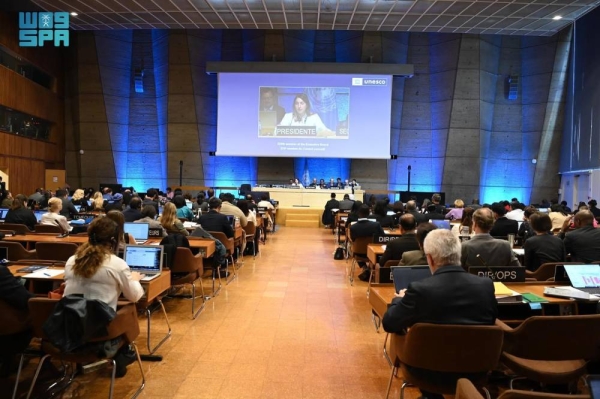Saudi Arabia recently participated in the 220th session of the UNESCO Executive Board, which took place in Paris, France. The Kingdom’s delegation, led by Ambassador Fahad Al-Ruwaili, highlighted Saudi Arabia’s commitment to being a leader in artificial intelligence (AI) for the benefit of humanity. They emphasized the Kingdom’s early adoption of UNESCO’s Ethics of Artificial Intelligence and its advocacy for these principles to promote sustainable development goals (SDGs) at the national level.
In addition to advocating for ethical standards in AI, Saudi Arabia is also spearheading regional efforts by hosting the International Center for Artificial Intelligence Research and Ethics (ICAIRE). This center aims to promote the international adoption of ethical standards in AI to support the achievement of SDGs in collaboration with global partners. The Kingdom’s draft resolution regarding ICAIRE played a significant role in discussions surrounding AI during the Executive Board session.
During the session, the Saudi delegation participated in a national commissions meeting where resolutions addressing procedural, substantive, financial, and administrative matters were issued. Saudi Arabia, as one of UNESCO’s founding members, has a history of continuous progress and strategic partnership with the organization. The Kingdom was chosen to lead the Open-Ended Working Group aimed at achieving balance in the UNESCO World Heritage List and is a member of UNESCO’s Executive Board, reflecting its pivotal and active role in decision-making within the organization.
Overall, Saudi Arabia’s participation in the UNESCO Executive Board session highlights its dedication to promoting ethical standards in artificial intelligence and supporting the achievement of sustainable development goals. The Kingdom’s leadership in hosting ICAIRE and advocating for the international adoption of these standards demonstrates its commitment to advancing AI technologies for the benefit of humanity. Through active participation in UNESCO meetings and initiatives, Saudi Arabia continues to play a prominent role in shaping global discussions and decision-making processes in the fields of education, science, and culture.
By participating in events such as the UNESCO Executive Board session, Saudi Arabia is able to showcase its efforts and initiatives in the field of artificial intelligence while also contributing to the larger global conversation on sustainable development goals. The Kingdom’s active involvement in discussions and resolutions related to AI and ethical standards demonstrates its commitment to being at the forefront of technological advancements that benefit society as a whole. Additionally, Saudi Arabia’s historical partnership with UNESCO and its leadership roles within the organization further solidify its position as a key player in international cooperation and collaboration in the realms of education, science, and culture.
In conclusion, Saudi Arabia’s participation in the UNESCO Executive Board session serves as a testament to the Kingdom’s dedication to promoting ethical standards in artificial intelligence and supporting the achievement of sustainable development goals. Through its leadership in hosting ICAIRE and advocating for international adoption of these standards, Saudi Arabia continues to be a driving force in advancing AI technologies for the benefit of humanity. The Kingdom’s active involvement in UNESCO meetings and initiatives demonstrates its commitment to shaping global discussions and decision-making processes in the fields of education, science, and culture.










